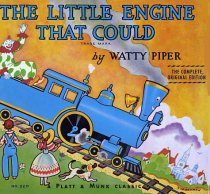Right now there’s lots of great advice about messaging in light of COVID-19 and about how to transform engagement strategies with social distancing in mind. In addition to these critical needs, there is an additional, overlooked need that we, progressive leaders, need to take on. NOW.
We need stories that teach truth, create civic engagement, and provide hope.
The Cultural Common Sense is quickly shifting. What lessons will people learn from this moment? Will fear, xenophobia, othering, and scarcity mindsets take over? Will people lose all faith that government could be an effective problem-solver? Will they look for comfort in an authoritarian father figure?
Or, will people emerge from this moment understanding that our public structures and systems matter, that we are interdependent, that government of, by and for the people means that we-the-people have the power to shape our nation?
The stories people learn in this moment will shape the Cultural Common Sense, with implications for all of our policies and policy battles going forward. The media is holding the Trump Administration accountable for failures, and we should continue to do that too. However, we also need to communicate wins – to demonstrate that collective action matters.
It’s on us to tell Success Stories, not “feel good” stories.
 In people’s desire to find light in this time of darkness, individuals are sharing “feel good” stories – Italian balcony concerts, neighbors helping neighbors, the kindness of strangers, and so on. These are very important for emotional and mental health; it’s great that individuals are providing optimism. However, “feel good” stories will not teach about collective solutions, create civic engagement, or provide hope that we-the-people can build the country we want and need.
In people’s desire to find light in this time of darkness, individuals are sharing “feel good” stories – Italian balcony concerts, neighbors helping neighbors, the kindness of strangers, and so on. These are very important for emotional and mental health; it’s great that individuals are providing optimism. However, “feel good” stories will not teach about collective solutions, create civic engagement, or provide hope that we-the-people can build the country we want and need.
Progressive communicators need to share stories of successful collective action – what we have accomplished and could accomplish. Like the Little Engine that Could, we-the-people can accomplish great things for the common good in the face of seemingly insurmountable odds.
Our research shows that people rarely hear of wins. In moments like this, with even more threats to already precarious lives, people feel powerless, especially the most vulnerable. Advocates have successes. We need to share them widely and often, and we should not undercut them with the notion that “it isn’t enough.” The specific win matters less than the idea that we-the-people got something significant accomplished, which inspires people to keep going for more, for that next bigger win.
Some of these stories are national in scope. For example, long before COVID-19, our research showed that people are inspired by the part our nation played in containing the Ebola epidemic. (We suspect people still don’t know that story because progressives don’t expend ongoing energy in communicating successes.)
Many of these stories are local in scope. For example, when our research respondents heard how residents of Chicago’s Southeast side banded together to take on a wealthy, multinational corporation and were successful in banning the storage of toxic material (petcoke) to make the community safer, they were inspired and excited to join a similar effort.
What Success Stories can we tell in this moment?
The eruption of activity by progressive organizations is inspiring. You are stepping up in heroic ways at the local, state and federal level. For example, advocates have won expanded paid sick leave, direct cash transfers, and were victorious over the failed logic of providing a trickle-down payroll tax cut. Work is well underway to protect and expand voting rights with efforts to advance vote by mail, registration requirements and so on. Activists in several states are winning the release of low-risk inmates due to health concerns. There are undoubtedly additional inspiring achievements playing out at the local level.
We need to make sure the average American hears about your efforts, your successes, your power. This isn’t about your ego. It’s about a teachable moment when Americans can see that people working together accomplish great and important things.
Please share your stories with us! We are starting a story bank for this moment, and need your stories. If you want some advice in crafting an effective story, let us know.
Stay safe, healthy, balanced and powerful!



